IT Engineer Leaves US Job to Turn Organic Farmer, Uses 50% Less Water & Earns Lakhs
Devang represents one of the many people who switched from the corporate world to organic farming with an aim to not only grow their own food but also make organic veggies accessible and affordable to others.
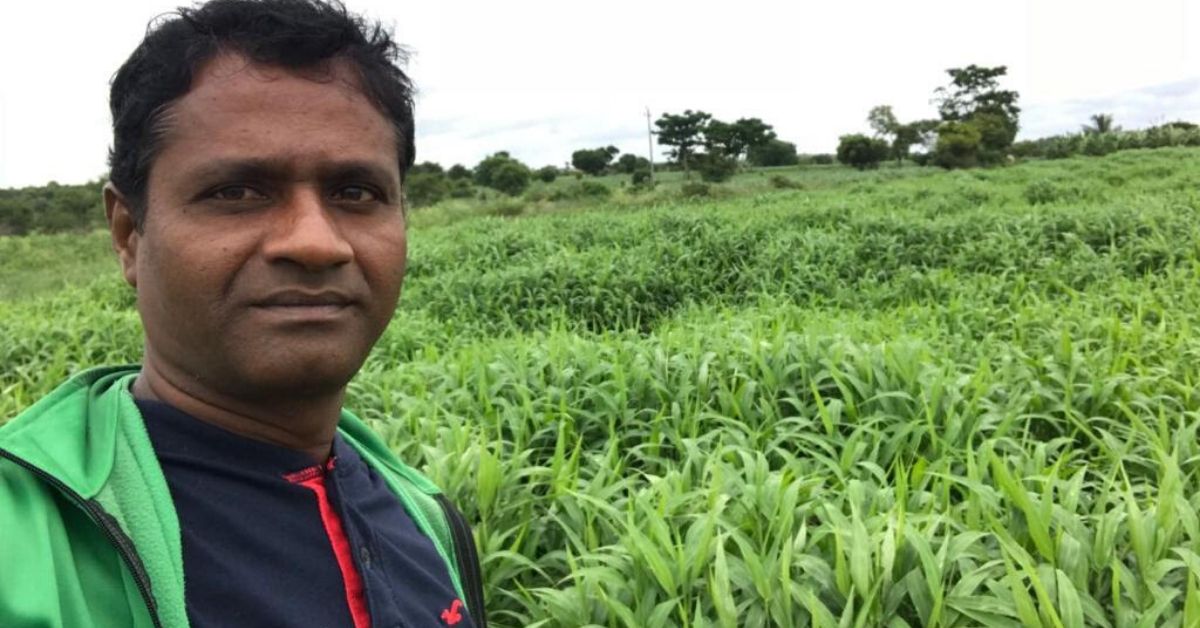
When Suresh Devang, an IT professional working in California told his parents about leaving his job and taking up organic farming in India professionally, he faced protests in place of support. His family members failed to understand why someone at a senior position would want to give all up for farming, a profession that is filled with risks.
For days, the 48-year-old told stories of successful organic farmers to his wife and parents with a hope they would at least consider his decision. But, the tales of farmer suicides and farming debt are so grave in the Indian landscape, that even today four years later, having proved his mettle as a farmer and earning neat profits, his parents are not fully convinced. But Devang has found his calling.
From Engineering to Organic Farming
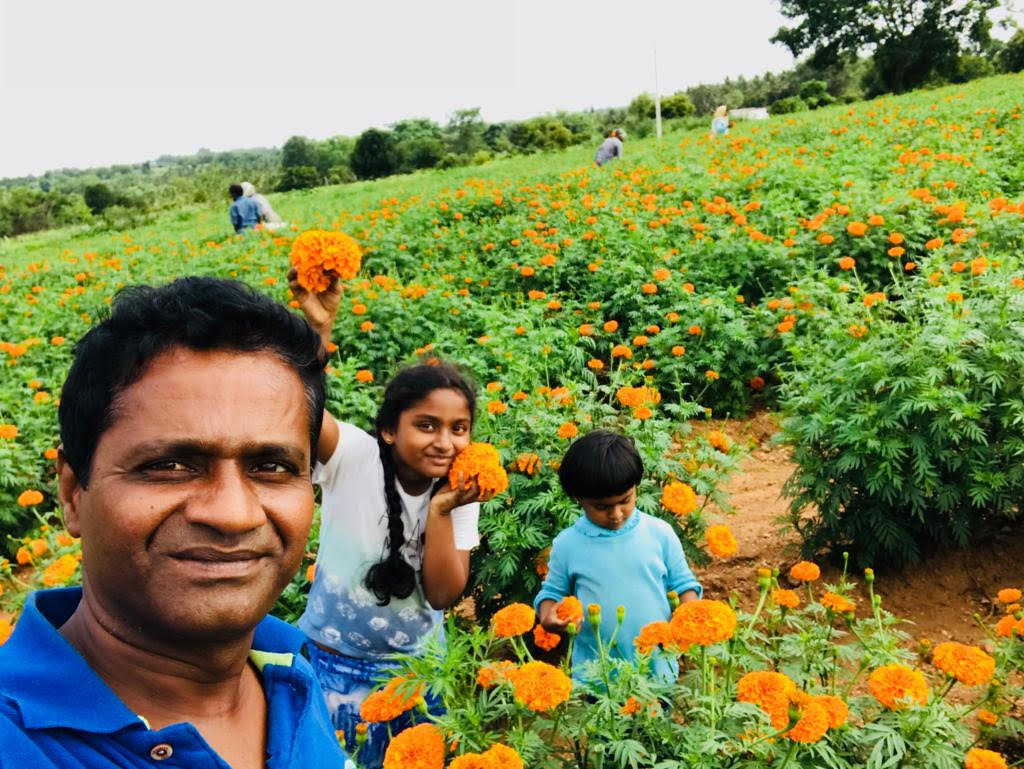
In 2016, Devang purchased 6-acre farmland and a year later moved to Mysuru’s Pura village of HD Kote taluk.
So, what made the software engineer leave behind a life of comfort and luxury and venture into a profession that he had very little expertise in?
“It was a combination of various things that prompted me to quit my job and return to India. I came across the story of an old Indian lady creating a forest without expecting anything in return. While I felt extremely proud of her, it was also a triggering point for me,” Devang tells The Better India.
Devang hails from an agrarian family and grew up eating chemical-free food. Along with many things he had left behind in his childhood, eating fresh food was one. Something he realised after exploring the benefits of organic food.
“All of us want to eat healthy food, but no one actually wants to grow them. Some studies I read even pointed out how we get lifestyle diseases at an early age due to unhealthy food. All the articles on farming I read during my free time motivated me to go back to my roots,” he adds.
Entering Into Farming When Pura was Struggling with a Drought
When Devang finally took the brave step and settled in India, Pura was going through a horrible drought and the distressed farmers were moving to other areas in search of employment.
If the discouragement from family and friends and mockery of other farmers was not enough, the drought dissuaded the engineer further and almost broke his morale.
But, not one to give up, Devang took advantage of this drought to level his land and develop water-conserving methods. For this, Devang hired the farmers who chose to stay behind, thus generating an alternative source of income for them.
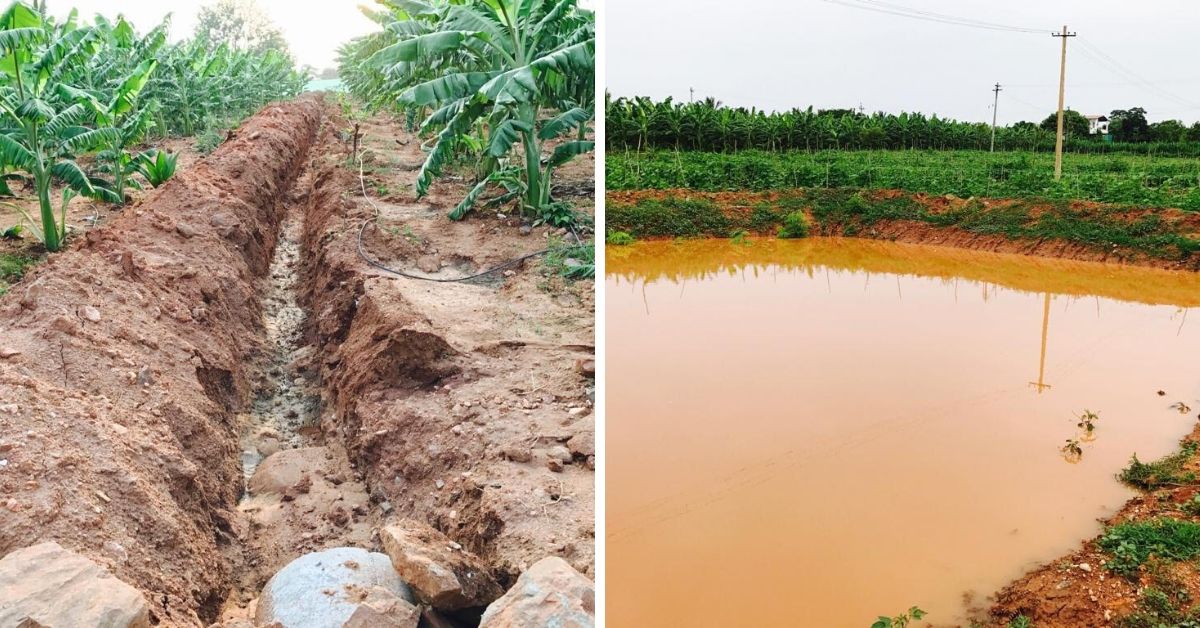
He built a farm pond (15×15 feet) with a capacity to store 1.25 lakh litres of rainwater.
In addition to that, he also dug a manhole around a borewell to recharge the groundwater. In the manhole, he kept pebbles of different sizes that filters the rainwater.
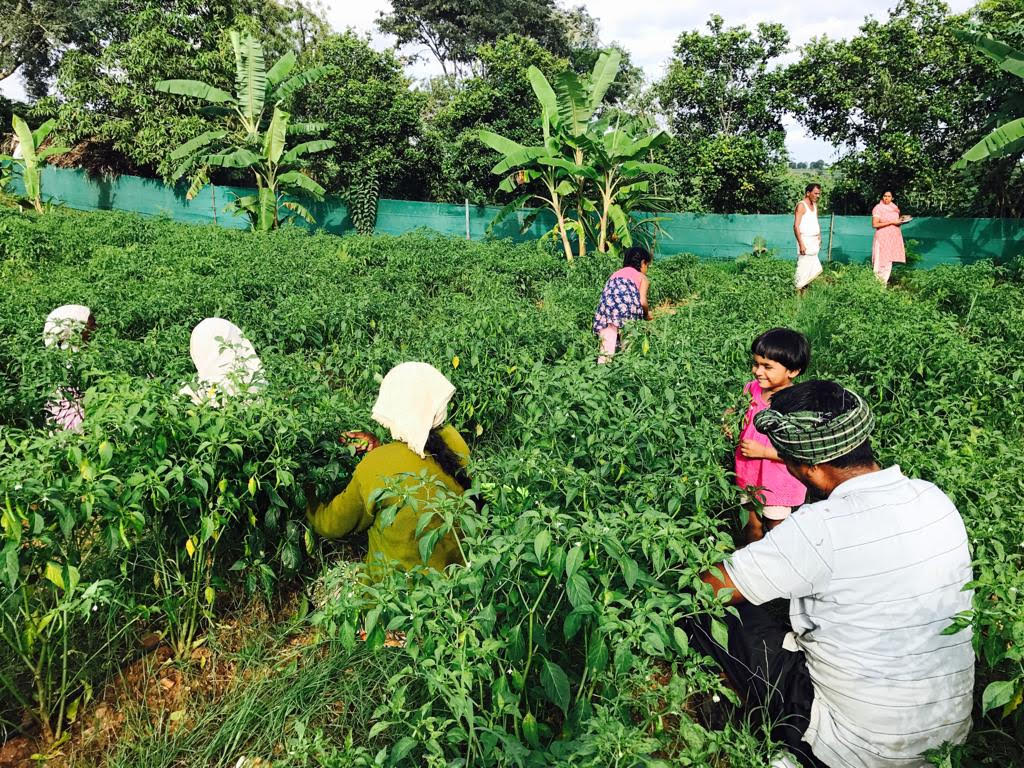
He also utilised the time to meet other farmers and officials from the Mysuru agriculture and horticulture department to learn about farming techniques. Among all the farming techniques, Devang chose Integrated Farm Management (IFM) to ensure sustainable farming.
Elaborating on this method, he says, “A cycle is formed on the agricultural land, where crop residues are fed to the animals and in turn, animal waste from the livestock is used as an organic fertiliser to grow food. In simpler terms, waste is reused as a useful product.”
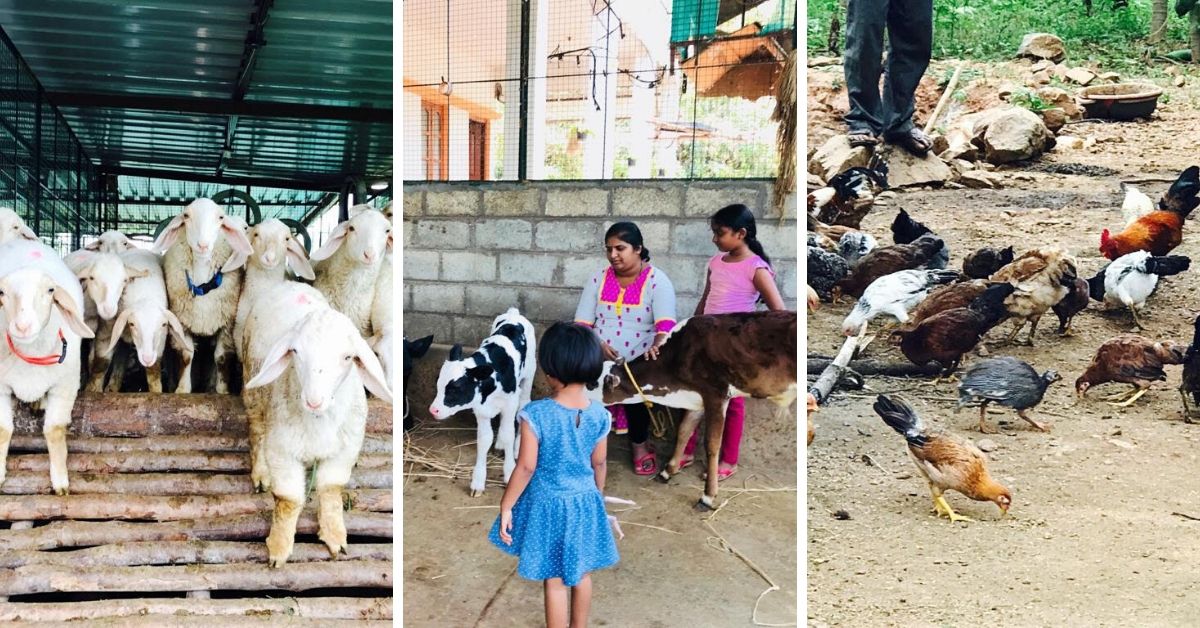
The Benefits of Organic farming: Growing Healthy Food Round the Year
For any new entrepreneur, sustaining the business amidst failures and losses is very crucial. Thus, Devang chose to produce food around the year instead of the seasonal harvest.
For intercropping (where two or more plants are grown on the same place), he made a blueprint of short-term and long-term vegetables, and crops and shrubs he could grow on his farm.
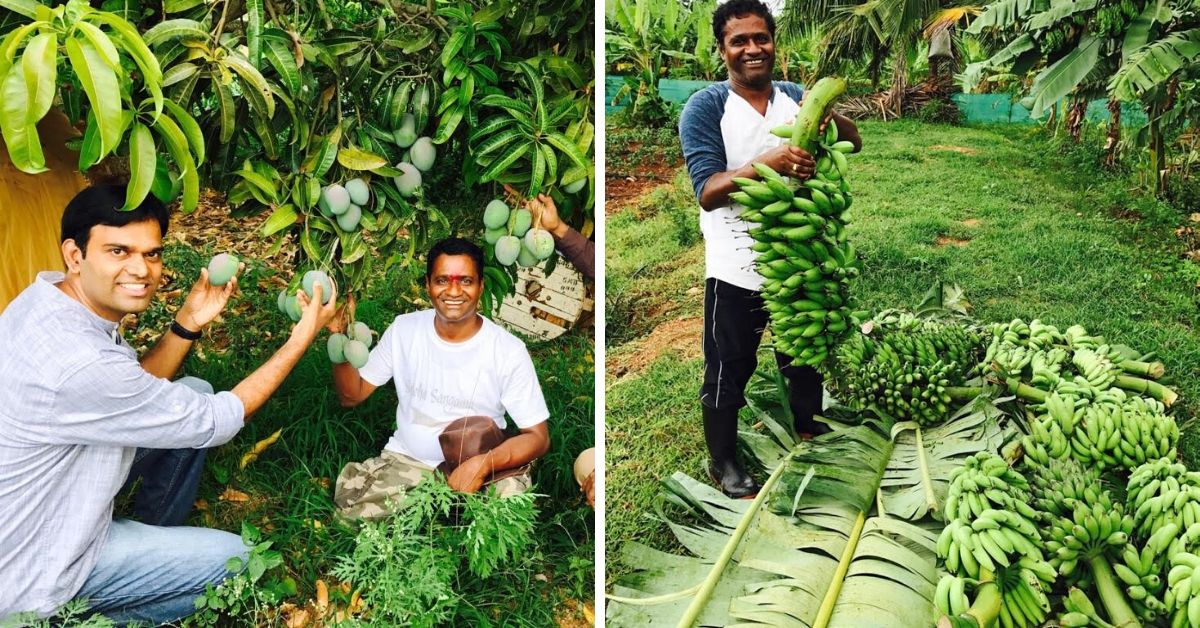
He ordered organic seeds from nurseries across India and started his activities. He dug trenches across the land, deposited organic wastes and covered it, “Trenches retain soil moisture for a longer time, allows only partial sunlight and prevents soil erosion from rain,” he adds.
Here’s how Devang has intercropped the seeds:
- He has planted one coconut tree each on four corners of the field at a distance of about 40 feet
- He planted 100 lemon trees between two coconut trees
- He then planted banana trees at eight feet apart in between lemon trees.
- Finally, the space between each banana plant was filled with plants like chillies, beans, marigold, medicinal plants, leafy and green vegetables.
As the vegetables in between the banana trees only take three months to grow, he is able to replace vegetables in every cycle.
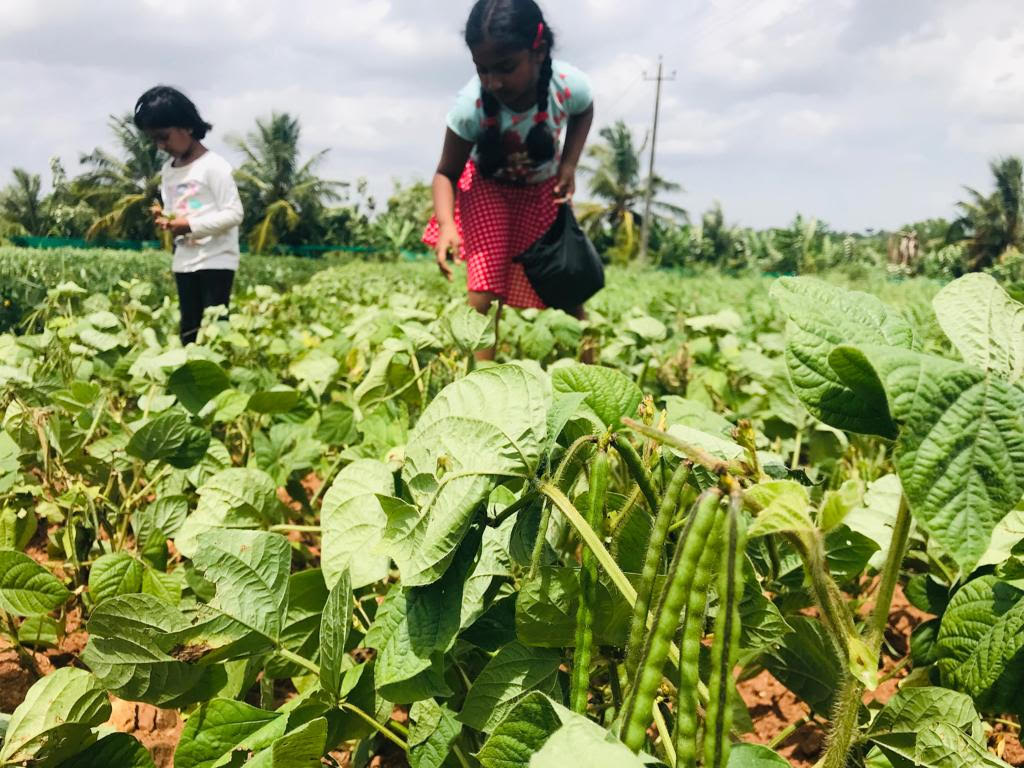
Explaining the reason behind his blueprint farm, Devang says, “Coconut trees give coconut every 5-6 years, whereas it takes three years for lemon trees to give lemons. So I had to plant short-term veggies to sustain myself.”
One of the biggest advantages of this type of farming, says Devang, is the water that is saved, “When I water the outside trees, the same water runs off in the middle, watering the vegetables. I save up to 50 per cent of water every time I irrigate the field.”
Additionally, in the adjacent 11-acre plot, Devang grows rainfed crops such as millets, ragi, rice, maize and so on.
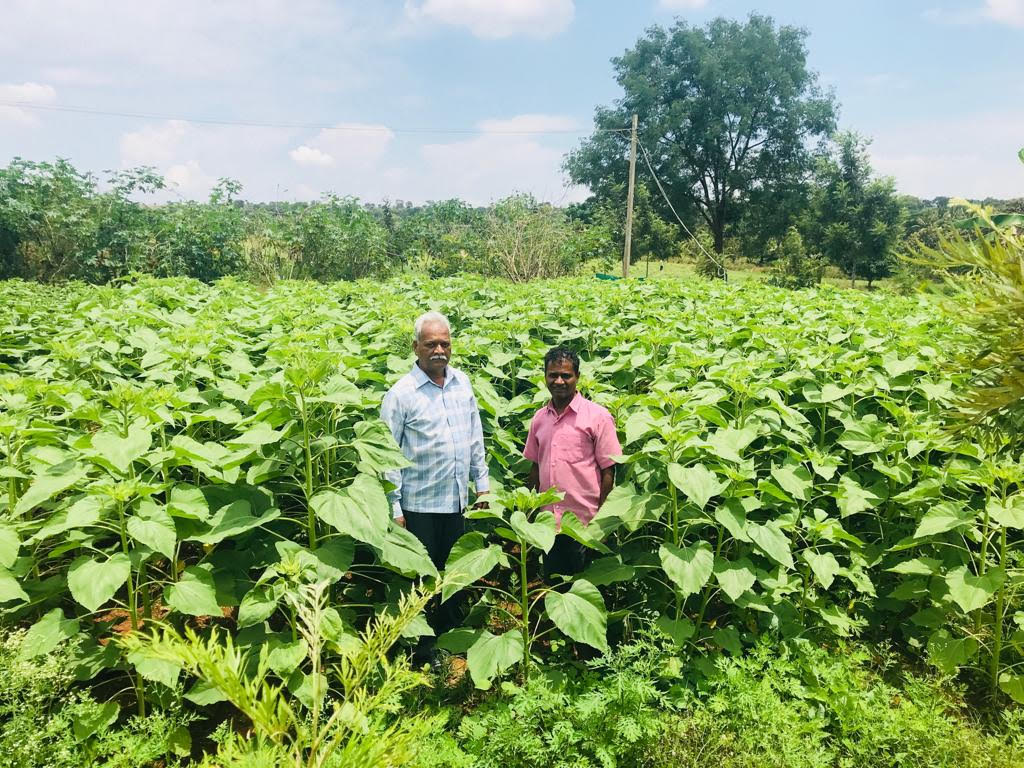
Winning Hearts & Accolades
For his novel methods, Devang was recently given the ‘Best District Farmer’ award by the University of Agricultural Sciences, Bengaluru. In terms of yield, the farm gives an output of 10-15 quintals of vegetables every year and 40 tonnes of bananas. This yield translates into yearly profits of around Rs 6 lakhs.
Devang has also tied up with local vegetable vendors, organic food outlets and companies across the state to sell his produce.
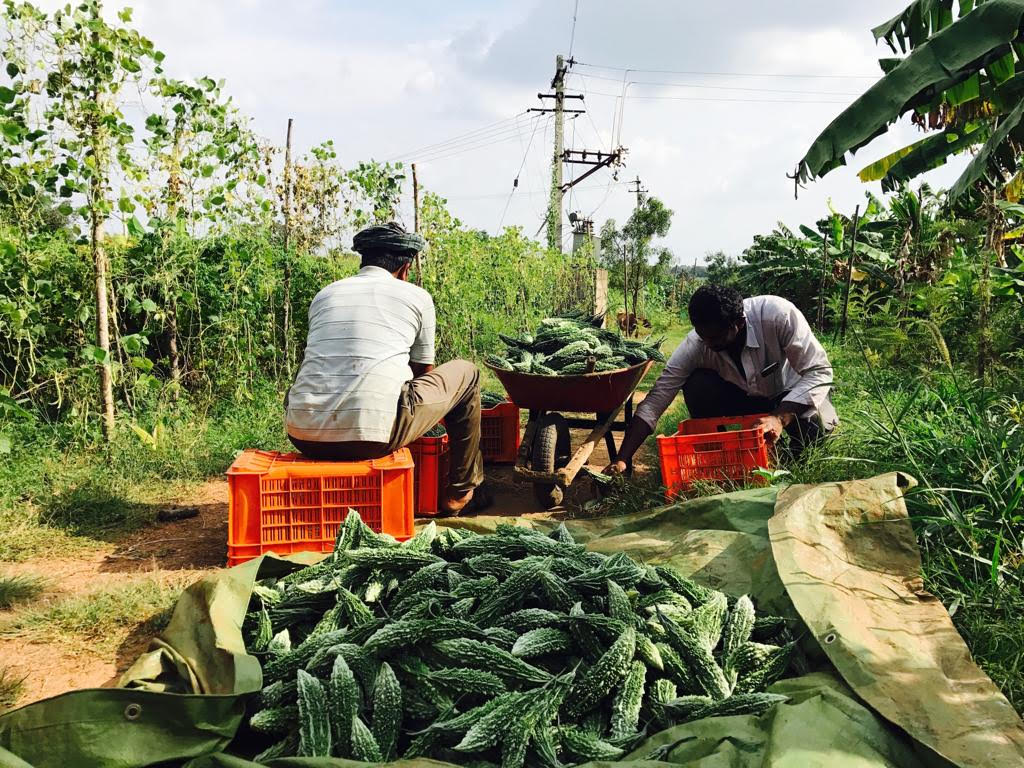
Like Jeevamrutha, an organic outlet in Mysuru, which has been purchasing vegetables from Devang’s farms for the last two years. It’s owner, Smita N tells TBI, “Many of our customers have given positive feedback in terms of the quality of Devang’s vegetables. It takes less than an hour to sell the fresh produce every morning.”
With three years of experience in farming, Devang aims to disperse his knowledge among others, especially farmers and students, “Every child must know the basics of growing food without chemicals and pesticides. I hope to invite schools for farm visits.”
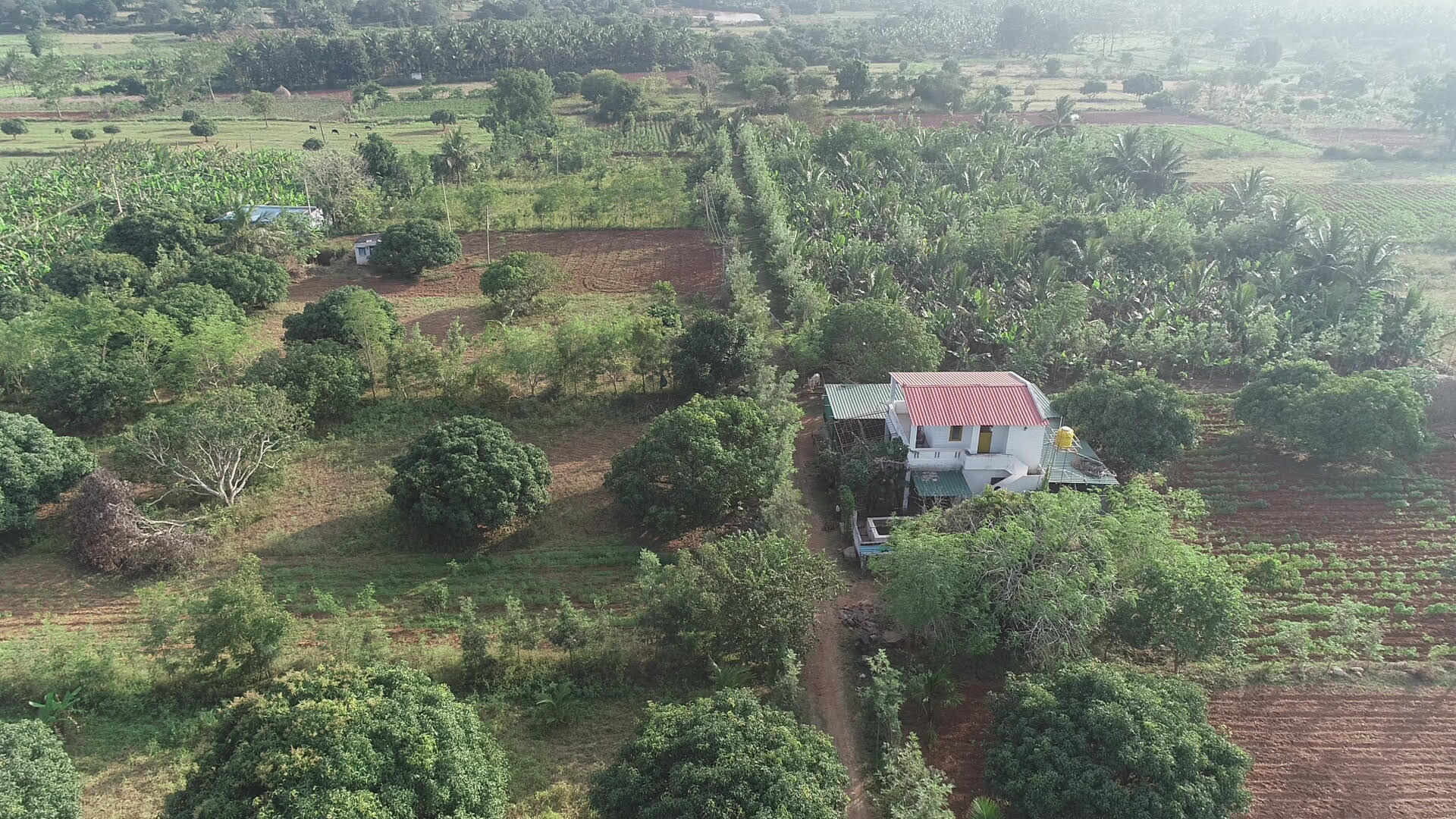
Devang represents one of the many people who switched from the corporate world to farming with an aim to not only grow their own food but also make organic veggies accessible and affordable to others. At a time when farmers are quitting agriculture, people like Devang provide hope for a greener future.
Get in touch with Suresh Devang at: [email protected]
Also Read: Wife’s Pregnancy Makes Punjab Man Start Natural Farming, Now Grows 30+ Veggies
(Edited by Saiqua Sultan)
Like this story? Or have something to share?
Write to us: [email protected]
Connect with us on Facebook and Twitter.
If you found our stories insightful, informative, or even just enjoyable, we invite you to consider making a voluntary payment to support the work we do at The Better India. Your contribution helps us continue producing quality content that educates, inspires, and drives positive change.
Choose one of the payment options below for your contribution-
By paying for the stories you value, you directly contribute to sustaining our efforts focused on making a difference in the world. Together, let’s ensure that impactful stories continue to be told and shared, enriching lives and communities alike.
Thank you for your support. Here are some frequently asked questions you might find helpful to know why you are contributing?


This story made me
- 97
- 121
- 89
- 167










